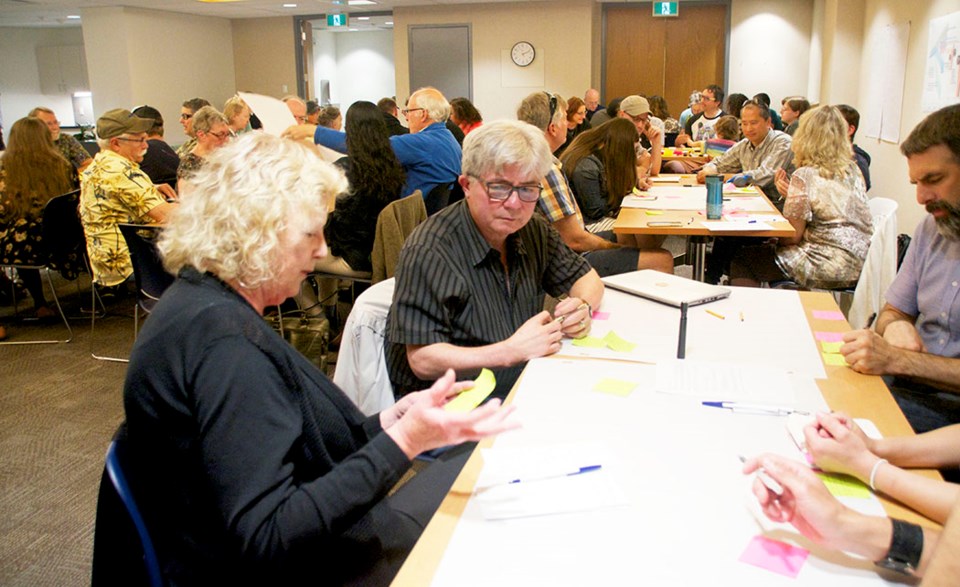Dozens of people showed up to a recent New Westminster event to contribute their vision for what is being dubbed a “Canadian Green New Deal.”
The concept of a green New Deal to address the climate emergency was popularized in the United States, and is modelled after Depression-era policies intended to resuscitate the economy, especially for those most affected by the Great Depression.
The Pact for a Green New Deal, which has been imported to Canada by dozens of organizations and individuals, is similarly intended to bring about a so-called “just transition” from fossil fuels to a green economy.
That transition, according to organizers, would be intended to narrow the wealth gap and respect the rights of minorities – particularly Indigenous rights.
Details are currently sparse on what, exactly, the Green New Deal would entail – the movement has kicked off with local town hall-style events to generate ideas on a wider plan.
In New West, a few dozen people met up at the New Westminster Public Library to contribute their ideas, which will be submitted to a central group to devise its chief document.
Terry Wilkings, one of four organizers of the local event, said the group devised a list of “green lines” (items deemed necessary for the Green New Deal document) and “red lines” (those deemed non-starters).
Among the green lines, Wilkings noted “first and foremost” reconciliation with Indigenous Peoples “from long-standing injustices,” making every community a “complete community” to minimize commutes and universal access to public goods and healthy food.
Red lines for the group included new fossil fuel infrastructure, status-quo taxation and “continuing on a path of endless consumption (fast fashion, planned obsolescence, single-use plastics, etc.).”
Wilkings said he was impressed with the turnout, which he felt was boosted by the City of New Westminster recently declaring a climate emergency.
“We face a watershed moment in history to redefine our political and economic systems. We need to recuperate our biodiversity, flatten wealth inequality and address the unravelling of our social fabric,” he said.
Although the the climate emergency can be an uncomfortable topic, Wilkings noted the importance of keeping a positive outlook to truly address the potential for environmental disaster.
“The theme would be the need to be aspirational in this exercise, to create a powerful vision that will transform our society,” he said.
He added that the “pendulum has dropped,” and time is running out to address climate change, saying there’s added emphasis on not holding back on what is necessary to address the climate emergency.
The group’s list of green and red lines has been added to the aggregated list being developed nationally, and will help to inform a draft document. No deadline for a draft document has been released, but Wilkings said anyone interested in getting involved can contact him at [email protected].



